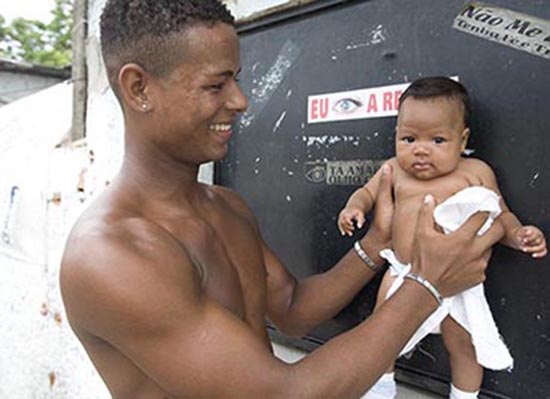Originally Posted by 2Y2W (Too Young To Wed)
By Jane Kato-Wallace, Equimundo & Karoline Davis, World Vision—India
A core and enduring aspect of gender inequality globally is the fact that men are generally expected to be providers and decision-makers, and women and girls areexpected to be responsible for caregiving and domestic tasks. Fathers, or other men in the family, often initiate marriage arrangements for their daughters, and have the final say. In India, traditional efforts to tackle child marriage and gender-based violence have concentrated on empowering young women to assert themselves and prevent violence. However, by failing to address the root causes of unequal and inequitable power relations between men and women we insulate men from the process of transformation and keep them embedded in the patriarchal mold.
According to recent estimates by UNFPA, between 2011 and 2020, more than 140  million girls will become child brides. Girls who marry young are left vulnerable to a myriad of physical and psychological risks such as intimate partner violence, maternal mortality associated with adolescent pregnancy, and the negatives go on. Despite valiant, if not uneven, efforts by NGOs, multilateral institutions, and governments, little progress has been made in ending this harmful and gender inequitable practice. Why?
million girls will become child brides. Girls who marry young are left vulnerable to a myriad of physical and psychological risks such as intimate partner violence, maternal mortality associated with adolescent pregnancy, and the negatives go on. Despite valiant, if not uneven, efforts by NGOs, multilateral institutions, and governments, little progress has been made in ending this harmful and gender inequitable practice. Why?
The issue of child marriage is one that is embedded in cultural practices that form the social fabric of many communities. It is anchored in the notion of girls as economic and social liabilities who must be gotten rid of as quickly as possible before they dishonor their families through perceived inappropriate relationships with men, or are sexually assaulted and their “marriageable” value declared nil.
In a world looking for simple formulas to solve complex problems, we often neglect to fully engage with both sides of the equation. Yes, girls need access to quality education. And, yes, we need to work to enact and enforce laws that set a minimum law for marriage. Yes to all that and more. However, if we, as members of the development community fail to see men, especially fathers, as equal partners in ending this harmful practice, our efforts will always fall short.
A recent needs assessment carried out by Equimundo in Agra for World Vision—India to inform the development of an intervention to engage men as fathers to end child marriage revealed that fathers play a key role in ending child marriage:
- Women reported fathers’ attitudes must be changed – fathers must be sensitized to the importance of education and health implications associated with early marriage.
- Issues such as alcoholism, violence against women, children, gambling were connected with men’s feelings of disempowerment – of “not feeling like men” because they were un or underemployed.
- Young women reported that fathers’ increased involvement in caregiving would, “bring more love into the family” and relieve the burden on the shoulders of women and girls.
- There is a lack of safe platforms to talk about problems that give rise to patriarchal and dominating behavior including those relating to issues of child marriage. We need to embed within all our prevention programs a more gender synchronized approach that recognizes the untapped value that men play in having emotionally strong and supportive connections with their daughters. Men can, want and do change. We need to provide spaces for men to reflect on the harmful norms that cause them to stifle the future potential of their daughters, and instead promote efforts that support equality for young women, for families, for all.
- Let’s all support men’s involvement in caregiving so that they can bring in a little more love.
–
Jane Kato-Wallace is a Program Officer with Equimundo in Washington, D.C. and co-coordinates the global MenCare Campaign to engage men in caregiving. This includes the development, implementation and evaluation of gender transformative interventions to work with men as fathers for gender equality.
Karoline Davis is a passionate gender expert with over 25 years of cross-functional experience in the development field, specifically in the areas of program management, capacity building and community development. She currently holds two leadership positions at World Vision: Associate Director of Gender and Development for the Asia Pacific region, and Gender Coordinator at World Vision India office.
MenCare is a global fatherhood campaign. Our mission is to promote men’s involvement as equitable, non-violent fathers and caregivers in order to achieve family well-being and gender equality. It is co-coordinated by Equimundo and Sonke Gender Justice Network.
To download tools, publications and learn more about the campaign, please visit us at www.men-care.org.